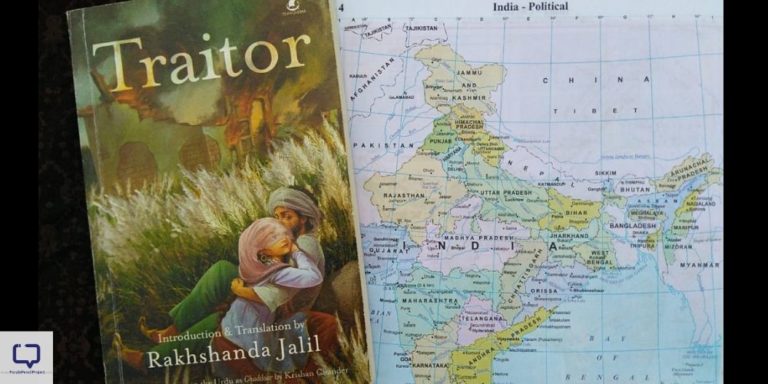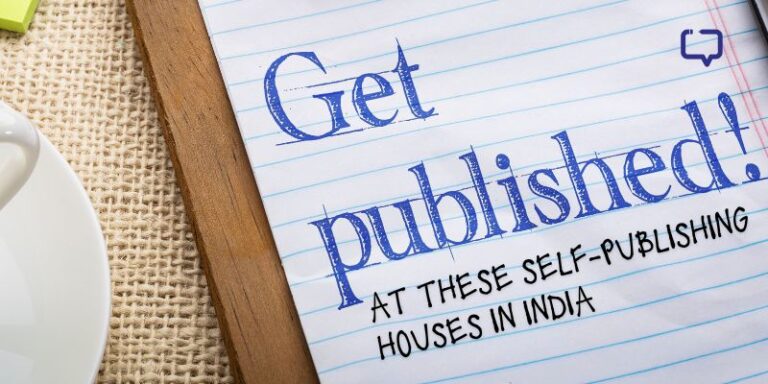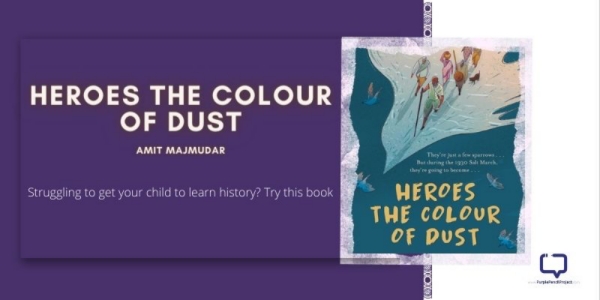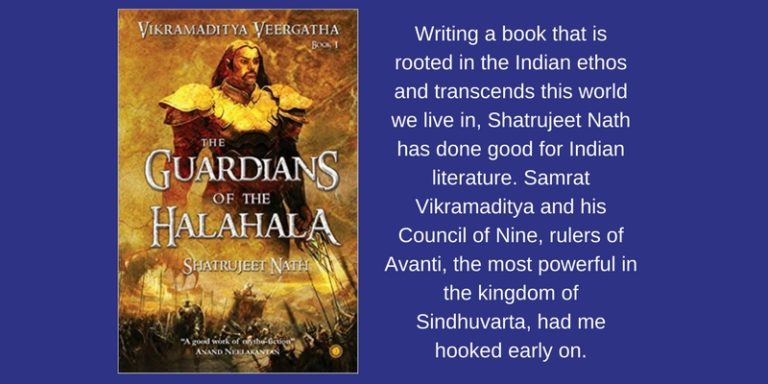The Museum of the World by Christopher Kloeble is a German translation to English by Rekha Kamath Rajan, and tells the story of years before 1857 like never before.
We encourage you to buy books from a local bookstore. If that is not possible, please use the links on the page and support us. Thank you.
The very first time that Christopher Kloeble went to a café in India, there was a world map on the wall that appeared distorted to him, until he realized that the map had South Asia at its centre and Europe was squished up somewhere in the north-west looking like the least important part of the world. This experience shook him out of his Eurocentric worldview, and is what he wishes to turn around with The Museum of the World.
Originally written and published Das Museum der Welt, with a brilliant German translation to English by Rekha Kamath Rajan (whose future translation work I look forward to reading), The Museum of the World is a historical fiction set between years 1854 and 1857, when the Bavarian brothers – Herman, Adolph and Robert Schlagintweit – embarked upon one of the most expensive and elaborate scientific expeditions through India and High Asia. The period is of particular relevance as it leads up to the revolt of 1857, the first war of independence waged by Indians against the British rule in India.
A unique perspective
Rather than telling the story from the Schlagintweit brothers’ perspective, which would have been the easy thing to do but would also have only reinforced an outsider’s worldview, the fictionalized account of the Bavarian brothers’ journey during this significant period in Indian history is shown through the eyes of Bartholomew, a twelve-year-old orphan boy from Bombay. Thanks to the special attention showered upon him by Father Fuchs – the missionary at the orphanage – Bartholomew can speak a dozen languages and is sent to the Schlagintweit brothers to function as their translatior, and aid them on their journey.
This also sets the path for Bartholomew’s personal journey, as the more he learns about his country, and in the process, about himself, the more his own worldview changes. It is the perfect setting to tell the complex story of British colonialism and a volatile India at the cusp of revolution, just waking up to the exploitative colonial policies of divide and rule, doctrine of lapse, opium farming and trade, and even the great game.
“As if we were simply pawns in some game.”
Placing Bartholomew in the expedition undertaken by the Bavarian scientists who were not themselves the colonisers in India is another interesting choice, one that examines the complicity of the scientific community at the time, whose findings were meant to ultimately help the colonisers have a greater hold over the Indian subcontinent. Also, while the Germans had no colonies in India, it was not for the lack of trying, and they did have many colonies in Africa.
The Remarkable Objects in the ‘Museum‘
Out of the mouths of babes…, they say. Bartholomew’s age and innocence lends fresh texture and truth to the narrative. He describes the Gujarati dish handvo as ‘happiness that can be eaten‘, and a rust coated tiffin that can never be opened as ‘a box that feeds everyone who shakes it with hope, because it clicks and clacks delightfully‘. Seeing the injustices of the world through his eyes both heightens them and makes them feel less overwhelming, because a child will pick himself up no matter how many times he falls.
While initially reluctant to accompany the expedition, Bartholomew realizes that the experience will be vital for his own personal project – he is creating India’s first museum – which is essentially a journal in which he attempts to scientifically record the many remarkable objects that he encounters in his travels through India and High Asia.
“I can collect everything I want in it: the heaviest, most expensive and most dangerous objects of the continent, and even invisible things such as feelings, dreams and memories.”
Of Objects and Observers
As Bartholomew documents remarkable objects in his notebook, which he calls The Museum of the World, the objects are often people in his lives. In a way it mirrors the way the colonizers viewed Indians as inhuman curios and collectibles. One of the Schlagintweit brothers even speaks about the observer’s effect when he says, “Every object of a scientific study changes when it is observed.. India can only be described objectively by someone who has never been here.” But as the story progresses, the characters in the book gradually become subjects that we develop an understanding and empathy for. During the course of this German translation to English, an interesting list of characters that are introduced in stereotypes – the Gujarati cook Smita Ben, the Bavarian missionary Father Fuchs, the Punjabi gardener Devinder, the Parsi accountant Hormazd, the Malayali translator Eleazar and of course the Schlagintweit brothers – become fully fleshed people and eventually the family that protects and nurtures Bartholomew’s coming of age journey.
“His story demands that I understand him, that I like him.”
Footnotes and (the lack of a) Glossary
Bartholomew supplements his acute observations made in German, the language of scientists, with what to him are very scientific footnotes as an explanation for his fellow Indians. In the footnotes, he describes Karl Marx as “a German who reflects a lot on the poor and the rich”. About London, he says, “There is no place I know more about even if I have not been there,” and a truer description of London for most Indians I have not heard. He calls out the Britishers and their lazy tongues that couldn’t say the Persian word for infantry soldiers, i.e. sepahis, instead choosing to call them sepoys (which reminded me of the weirdly twisted logic of the Britishers in Meghalaya who found Sohra too complicated to pronounce, and hence rechristened it Cherrapunjee). He also describes a picnic as the first time he saw Britishers sitting on the ground and eating. “Some were not even able to bend their legs. They are as stiff as the chairs they normally sit on.”
This was my favourite part of the book.
Decolonizing language in this German translation to English
It is important to note that these are Bartholomew’s innocent (and often hilariously on point) explanations and not the author trying to describe India to his fellow Germans and other western readers. Despite having some three hundred odd Hindi words casually sprinkled in the text, there is no glossary that italicizes, exoticizes and explains these words to the western reader. With this little act of rebellion, Kloeble rejects the othering of Hindi and provides a fine example of decolonial language aesthetics.
Who has the right to tell a story?
At one point in this novel, having found out about his mixed heritage, Bartholomew says, “I doubt whether I am the right person to create a museum for India.” It is an interesting question, one that is sure to have crossed the mind of the author, who is himself a German telling the story of an Indian. But, it does not matter that this German translation to English, which speaks about India and its history, is written by a German. Because, in a way, isn’t every person a country to herself, and where, if not in fiction, can we step into the shoes of another to understand them?
It is an endeavour that Kloeble undertakes with utmost respect, empathy and even a very desi brand of humour. And while he may not have all the answers, the best one can expect from good fiction is that it poses important questions from where conversations can take off.
In conclusion
Besides the many nuanced political statements that it makes, The Museum of the World is a compelling tale of adventure, survival, and identity. This German translation to English is also a thoroughly heart-warming coming of age story, where through important friendships and even personal tragedies, Bartholomew grows up to be the person his country needs him to be at that point in history. More importantly though, it is an absolute delight to read, and a brilliant German translation to English.
Best Quotes
“Robert says that before him there has rarely been a European in this region. Perhaps, I think to myself, there is a reason for that. Is it really necessary to penetrate into those regions where no one has been before?
What a foolish thought! Father Fuchs and the Schlagintweits and even Alexander von Humboldt would laugh at me. Naturally, the map of the world has to be filled in. Just like the Museum.”
Have you read this charming and amusing debut novel of a simple life in a small hill town? What do you think of it? Drop a comment below and let us know!

As part of our effort to compensate our writers better, we at Purple Pencil Project have launched the #PayTheWriter initiative, where readers can directly show support and appreciation for our wonderful team.
Scan or upload this image on your UPI app, and show them the love 😀
























5 Responses
A great review. Thank you.
Thank you!
Grateful to your translation for giving the English reading world access to this delightful book! Can’t wait to read what you translate next. 🙂
Priyadarshini’s insightful dissection of the book has made The Museum of the World an irresistible buy for me.
Thank you for unravelling it so beautifully !
Thank you so much! I hope you enjoy the book and we get to discuss it! 🙂